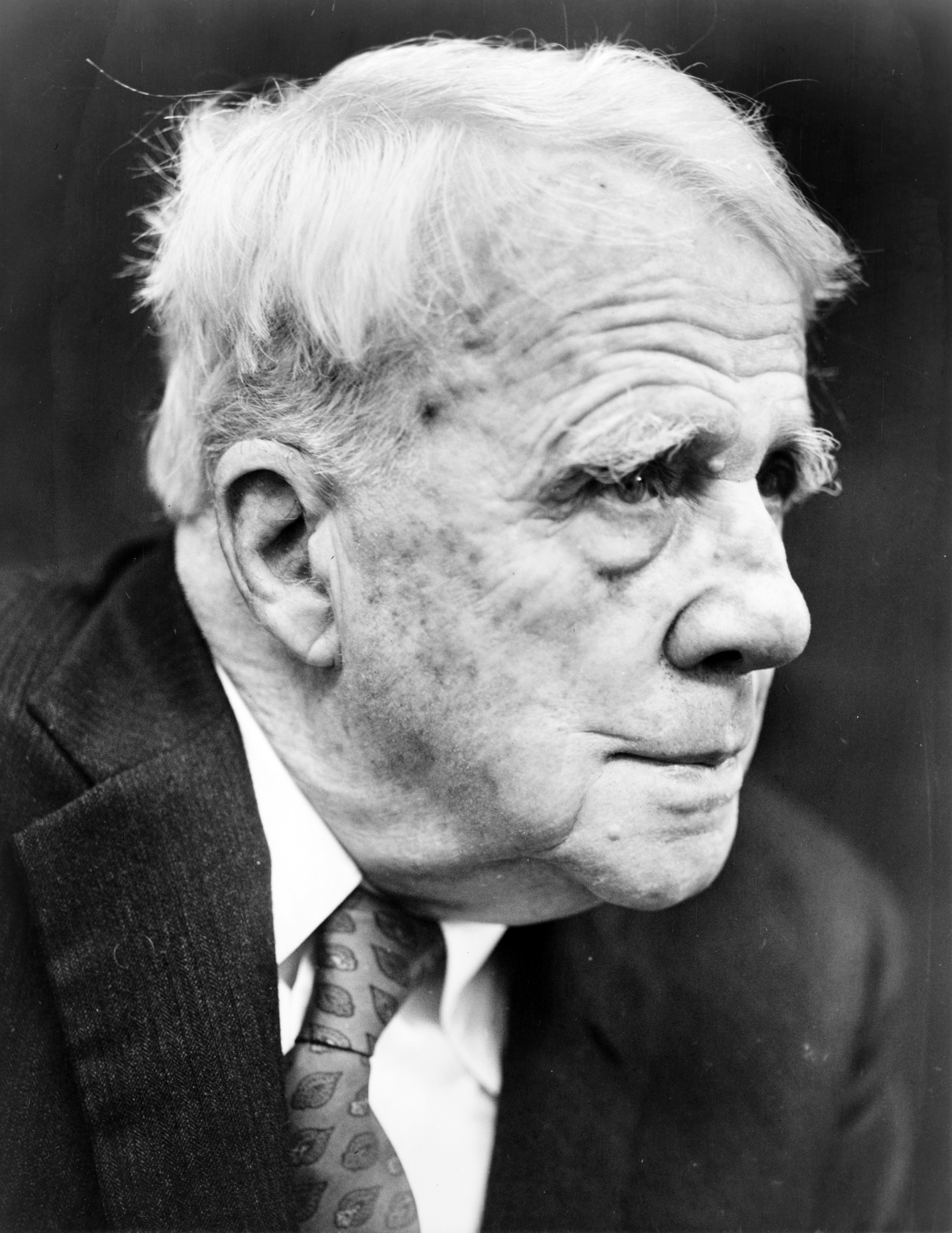Frost, Robert (1874-1963), became the most popular American poet of his time. He won the Pulitzer Prize for poetry in 1924, 1931, 1937, and 1943. In 1960, Congress voted Frost a gold medal “in recognition of his poetry, which has enriched the culture of the United States and the philosophy of the world.” Frost’s public career reached a climax in January 1961, when he recited his poem “The Gift Outright” at the inauguration of President John F. Kennedy.

His life.
Robert Lee Frost was born in San Francisco on March 26, 1874. After the death of his father in 1885, his family moved back to New England, the original family home. Frost briefly attended Dartmouth and Harvard colleges but did not earn a degree. In the early 1890’s, he worked in New England as a farmer, an editor, and a schoolteacher, absorbing the materials that were to form the themes of many of his most famous poems. In 1912, he moved briefly to England where his poetry was well-received and where he met poets William Butler Yeats and Ezra Pound. His first volume of poetry, A Boy’s Will, appeared in 1913. His final collection, In the Clearing, appeared in 1962. Frost died on Jan. 29, 1963. The Notebooks of Robert Frost was published in 2007.
His poems.
Frost’s poetry is identified with New England, particularly Vermont and New Hampshire. Frost found inspiration for many of his finest poems in the region’s landscapes, folkways, and speech mannerisms. His poetry is noted for its plain language, conventional poetic forms, and graceful style. He was deeply influenced by classical poets, especially Horace. Many of Frost’s earliest poems are as richly developed as his later ones.
Frost is sometimes praised for being a direct and straightforward writer. While he is never obscure, he cannot always be read easily. His effects, even at their simplest, depend upon a certain slyness for which the reader must be prepared. In “Precaution,” Frost wrote:
I never dared be radical when young For fear it would make me conservative when old.
In his longer, more elaborate poems, Frost writes about complex subjects in a complex style.
Frost tends to restrict himself to New England scenes, but the range of moods in his poetry is rich and varied. He assumes the role of a puckish, homespun philosopher in “Mending Wall.” In such poems as “Design” and “Bereft,” he responds to the terror and tragedy of life. He writes soberly of vaguely threatening aspects of nature in “Come In” and “Stopping by Woods on a Snowy Evening.” In the latter poem, he wrote:
My little horse must think it queer To stop without a farmhouse near Between the woods and frozen lake The darkest evening of the year.
“Precaution” and one stanza from “Stopping by Woods on a Snowy Evening,” from the book The Poetry of Robert Frost edited by Edward Connery Lathem. Copyright © 1923, 1969 by Henry Holt and Company, copyright © 1936 by Robert Frost, copyright © 1964 by Lesley Frost Ballantine. Used by Permission of Henry Holt and Company, LLC. All rights reserved.
A similar varied pattern can be found in Frost’s character studies. “The Witch of Coos” is a comic account of the superstitions of rural New England. In “Home Burial,” this same setting is the background of tragedy centering around a child’s death. In “The Hill Wife,” Frost shows the loneliness and emotional poverty of a rural existence driving a person insane.
By placing people and nature side by side, Frost often appears to write the kind of Romantic poetry associated with England and the United States in the 1800’s. There is, however, a crucial difference between his themes and those of the older tradition. The Romantic poets of the 1800’s believed people could live in harmony with nature. To Frost, the purposes of people and nature are never the same, and so nature’s meanings can never be known. Probing for nature’s secrets is futile and foolish. Humanity’s best chance for serenity does not come from understanding the natural environment. Serenity comes from working usefully and productively amid the external forces of nature. Frost often used the theme of “significant toil”—toil by which people are nourished and sustained. This theme appears in such famous lyrics as “Birches,” “After Apple-Picking,” and “Two Tramps in Mud Time.”
See also Blank verse; “Road Not Taken, The.
